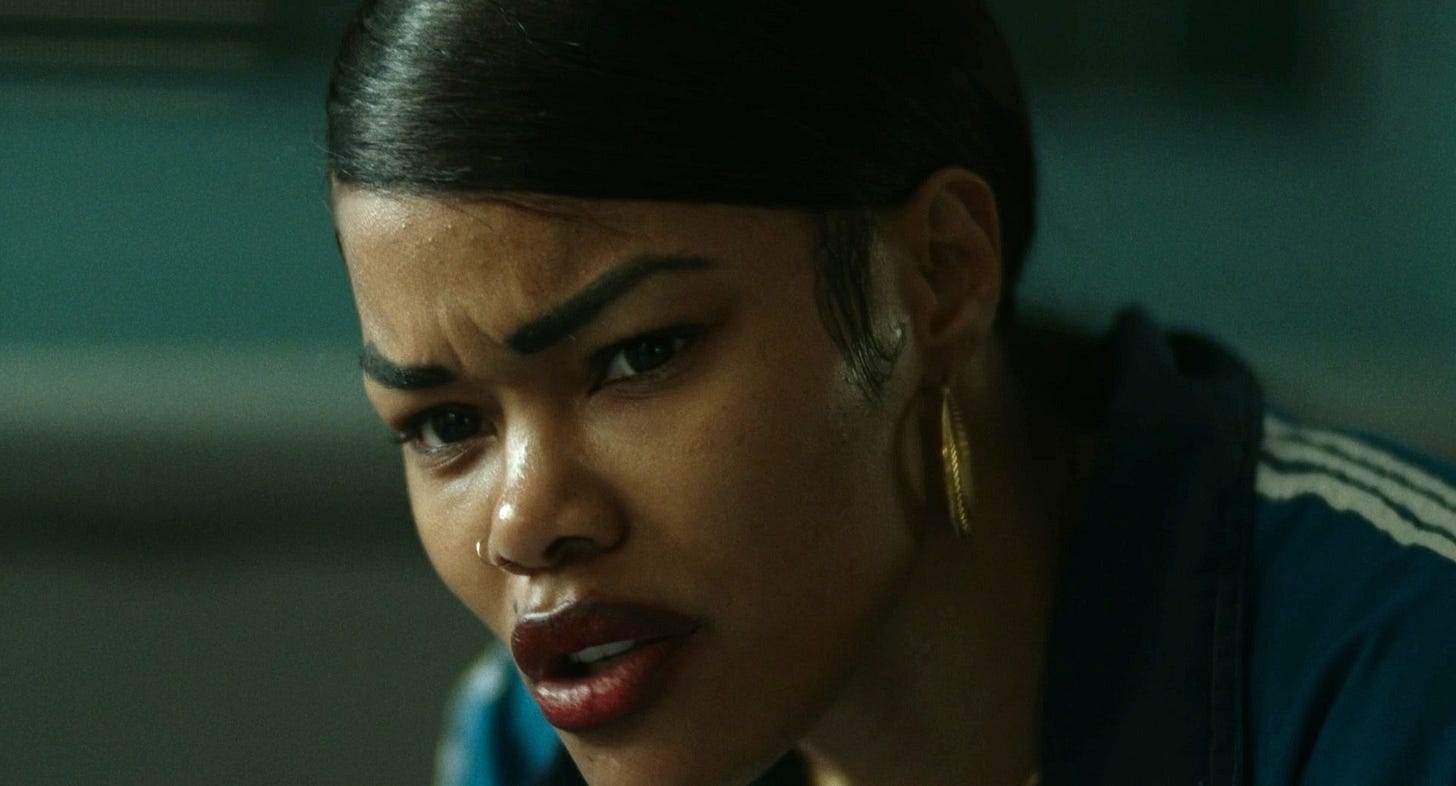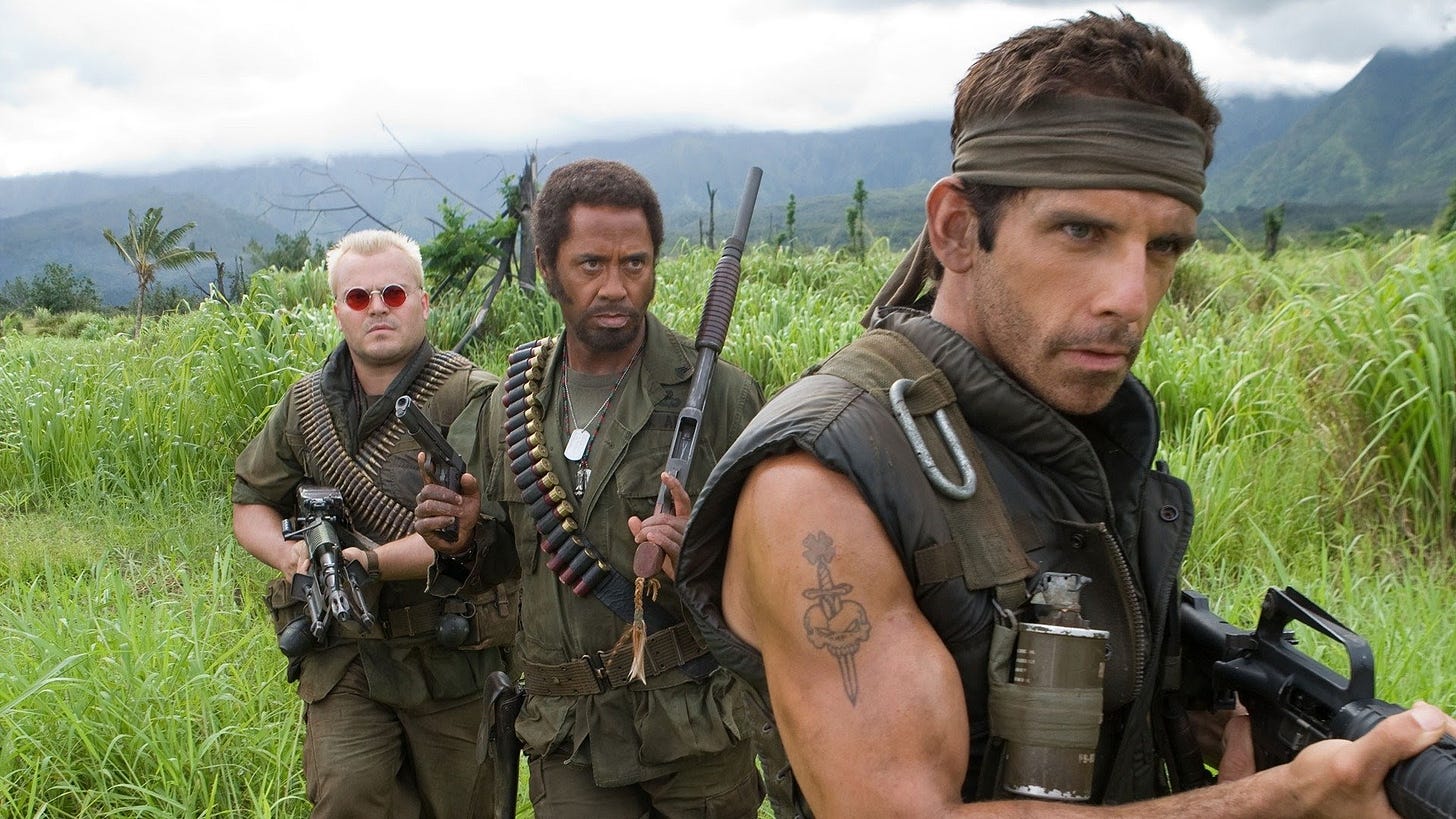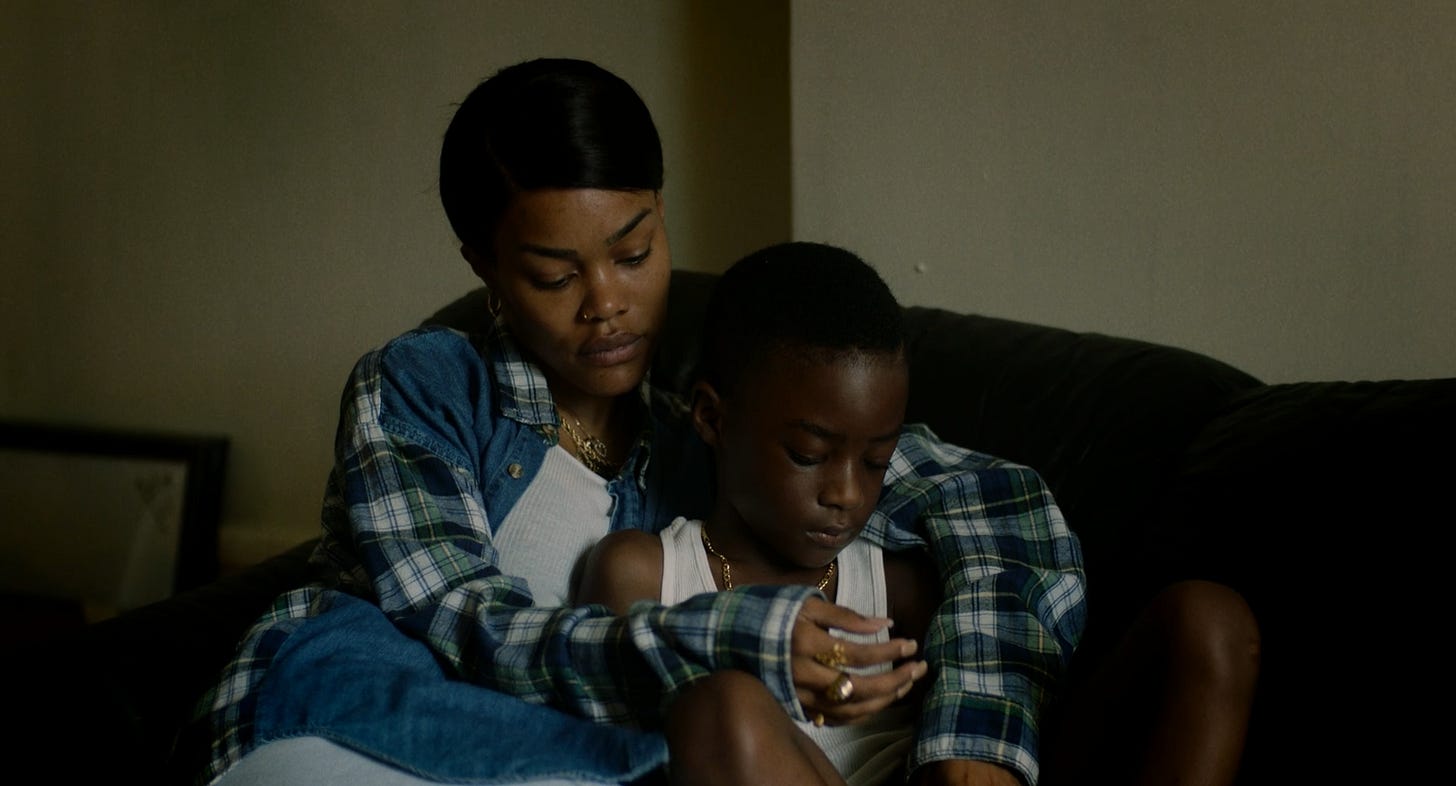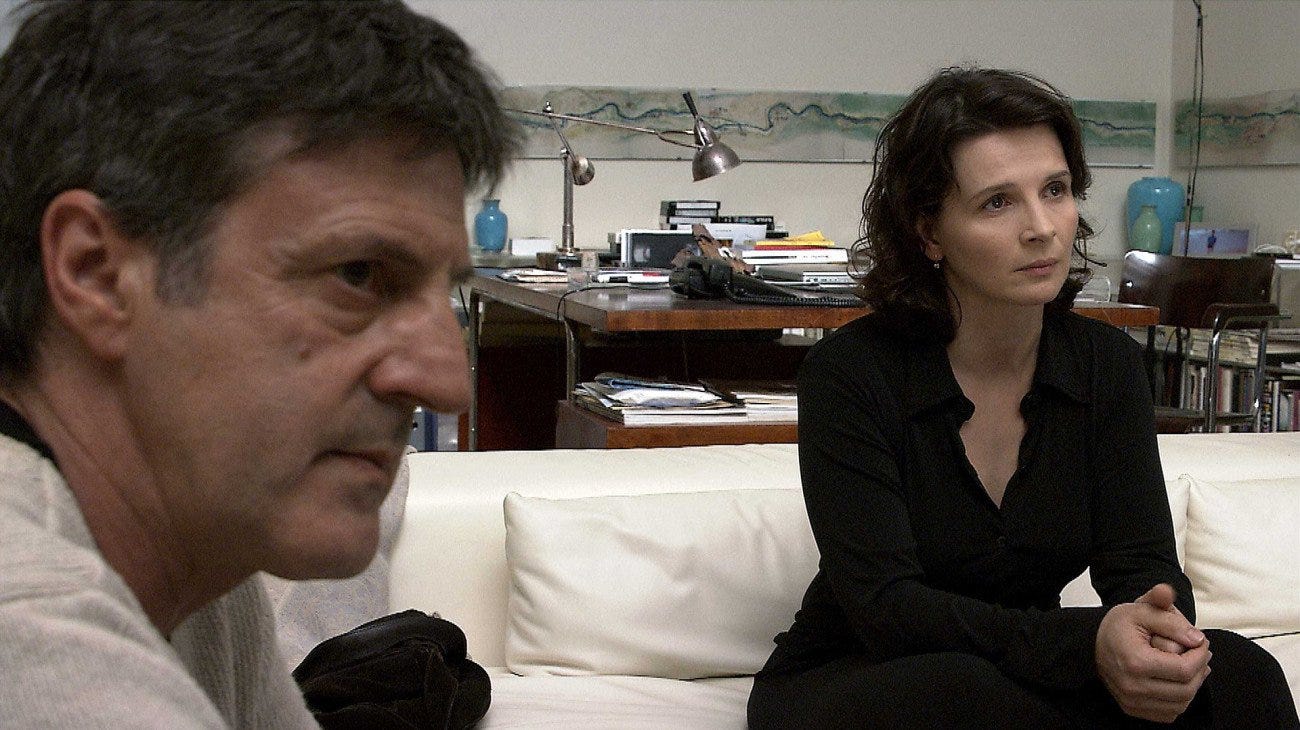The rotten truth about taste aggregators and "scoreboard cinema" 🍅
Plus: Ten Gems the New York Times Overlooked on That "Best Movies" List
Last week, the New York Times released a ranked list of the 100 Best Movies of the 21st Century, as chosen by a panel of 500 “notable names in Hollywood and around the world.”
My feelings about such lists are, at best, conflicted.
Yes, they can be fun, as everything is now required to be - a kind of parlor amusement, a way to spark conversation while measuring the tastes of others against your own. Best of all, these lists get people talking about movies, and maybe even watching some.
Humans are hard-wired to rank stuff, and have done so since the Upper Paleolithic. We’ve invented totemic clans, caste systems, and priestly orders (like the New York Times) to bring order to a chaotic world. Ranking once helped us make decisions about survival. Now, thanks to the internet, we rank everything - hotels, restaurants, toothpaste brands. These lists are useful, no doubt.
Ranked lists of movies, however, are stupid, and I hate them.
What, exactly, is the purpose of assembling a shadowy coven of elites to proclaim that Ratatouille is better than Michael Clayton? By what measure? In what world? You cannot meaningfully compare those two movies, just like you can’t claim to love cinema and simultaneously reduce it to a bloodless ledger of winners and losers.
To be fair, the individual contributors’ lists were far less offensive. These were idiosyncratic, revealing, and as far as I can tell, blissfully unranked. The master list, however - the only one most people saw - was processed through the meat grinder of dull consensus math: ranking the quality of movies based on the quantity of mentions they received. Because as we all know, the more people like something, the better it is. The result was largely predictable, occasionally infuriating, and engineered to go viral.
Ranked lists like these exist for one reason: the algorithm loves them. They spark a lot of silly arguments, which keep the rage machine humming. Yes, they are “fun.” But just as a cake isn’t made of frosting alone, fun is not the only ingredient that matters.
Movies - even our most fun-forward blockbusters - help us wrestle with desire, faith, grief, and the unknown. They force us to confront the contradictions of our lives, and sometimes light a path out of them. Their resonance is intimate, mercurial, and highly subjective. To rank them is to dull that resonance by trying to standardize it.
Cinema is not a sport. It’s an art. So why rank movies? Why must everything we love be flattened into joyless discourse bait? 1
The Times list includes many films I admire deeply. It also leaves out more than a few that have shaped my life in ways no ranking could ever quantify.
So, in no particular order, here are ten underexposed bangers the Gray Lady snoozed on.
Underexposed is an ad-free weekly film publication powered by readers. Support the future of cinema culture - because our tech lords sure as hell won’t. Go premium for bonus articles, videos, and more.
The Act of Killing (2012, Joshua Oppenheimer)
What if you invited a group of unrepentant Indonesian death-squad members to re-enact their atrocities as actors in a movie? That’s essentially what Joshua Oppenheimer did in The Act of Killing, a hypnotic, appalling, and surreal documentary that concussed me when I first saw it at the Sunshine over ten years ago. It’s a quirky film about genocide - the anti-Communist purge that claimed over a million lives in 1965-66 - but also about vanity, denial, and the odd compulsion to confess. Executive produced by Werner Herzog and Errol Morris, the film sparked a firestorm when it arrived back in 2012, and has only gained blast radius with time. Roger Ebert called The Act of Killing “a masterpiece about propaganda, cinema and vanity as instruments of power and terror.” Watch the extended director’s cut now on Tubi.
Burning (2018, Lee Chang-dong)
A shy writer connects with a childhood neighbor, who has grown into a rather mysterious woman. He meets her unnervingly void ex-boyfriend. Then she vanishes. Lee Chang-dong’s slow-burning thriller is part Fitzgeraldian love triangle, part fractal mindfuck. Loosely based on the short story “Barn Burning” by Haruki Murakami and the Faulkner story of the same name, Burning thrums with dread, alienation, and absurdity, a sensation that might feel hauntingly familiar to anyone alive on this planet right now. Co-writer Oh Jung-mi called the movie “a dance that seeks the meaning of life,” which sounds great to me. And Steven Yeun, in a career-redefining turn, plays a smooth, sociopathic arsonist with chilling opacity. Watch it on Tubi.
Tropic Thunder (2008, Ben Stiller)
While filming a bit part in Spielberg’s Empire of the Sun, Ben Stiller had an idea: What if a group of egomaniacal movie stars set out to make a self-important Vietnam War epic, only to stumble into an actual war zone and have to act their way out? Tropic Thunder dropped in 2008, back when studio comedies had teeth and a light cocaine habit. Nothing about this movie plays safe. Stiller stars as a washed-up action hero trying to reclaim relevance. Robert Downey Jr. goes full method (and blackface) as an Australian actor with a God complex. Jack Black is a fart-joke icon with a raging heroin addiction. And Tom Cruise, nearly unrecognizable, plays a foul-mouthed, fat-fingered studio exec. The fake trailers that open the film, which double as character introductions, are truly inspired. Streaming on Pluto.
A Thousand and One (2023, A.V. Rockwell)
Fresh out of Rikers, a woman kidnaps her son from foster care and raises him in a New York that’s disappearing block by block. A Thousand and One is a mother-son drama elegantly rendered by Rockwell in frail, available light, with Teyana Taylor delivering one of the most powerful breakout turns of the new century. Gary Gunn’s score is one of the most beautiful I’ve heard in years - grand, weary, and perfectly attuned to the film’s emotional pulse. For me, A Thousand and One is unforgettable for the way it unpeels contemporary New York. Other films have conjured isolated flavors within that New York (the Safdie movies, Steve McQueen’s Shame), but A Thousand and One somehow delivers the whole Baskin-Robins. It really got me excited about New York movies again, and the future visions of its promising first-time filmmaker, A.V. Rockwell. You can stream it on Starz or buy it on BluRay.
First Reformed (2017, Paul Schrader)
A pastor, grieving and spiritually adrift, becomes radicalized by environmental despair. First Reformed is, to my mind, Paul Schrader’s most restrained and explosive film. Ethan Hawke is devastating in the lead, and Philip Ettinger is unforgettable in a brief but shattering role. While working with Ettinger on my short film Hold Up, he told me the blocking and tone of his now-iconic monologue came together spontaneously, after Schrader tried and discarded several other approaches.
First Reformed hangs over you like stale incense. It clings to the skin. For those of us who spent our formative years in small churches with creaky pews and no guitars, while our classmates basked in the LED glow of suburban megachurches, First Reformed feels almost unbearably vivid. You can rent or buy it here.
The remaining five will be revealed below. But first, the news!
News Reel
- calls out the demise of development spending in Hollywood: “What we have to remember is that this business runs on exceptions. For every studio that’s done well, a small handful of truly great movies and shows did the heavy lifting.
Solid doesn’t move the needle. Exceptional does. Getting there is hard. It takes drafts. Disagreement. Real development. Yes, there are challenges: theatrical windows, audience habits, COVID aftermath. But the biggest opportunity is still the oldest: make something great.”
P. Adams Sitney, a leading scholar of avant-garde film and co-founder of the Anthology Film Archives in NYC, died this week at the age of 80: “He championed the work of avant-garde pioneers like Maya Deren, Stan Brakhage, Gregory Markopoulos, Jonas Mekas and Peter Kubelka, several of whom helped him found Anthology Film Archives, the East Village bastion of avant-garde cinema, in 1970. He saw their films as pure experiments toward achieving one of cinema’s true vocations: the mirror of the dream state.” RIP.
This week in
, professes that artificial intelligence can't compete with human creativity: “The conflict isn’t really between art and AI. It’s between product and process. It’s between art and content. And in our culture, we value content far, far more. As always, the choice is ours. AI can be the death of art, if we forget what art is ultimately for and about. Or, it can be a powerful new means of creation, the way the invention of the camera opened up new avenues and opportunities for creative expression.”
Cache (2005, Michael Haneke)
When a bourgeois Parisian couple begins receiving anonymous videotapes surveilling their home, guilt and paranoia slowly seep through the cracks of their comfortable routines. Viennese auteur of sadomodernism Michael Haneke has long taken aim at Hollywood for promoting the passive consumption of cinema - movies that shepherd audiences beat by beat, instructing them exactly what to think and feel. Haneke, by contrast, demands our participation. That challenge thrilled me when I first encountered Caché, and it continues to haunt me every time I return to it. The film is a beguiling, chilling, anti-Hitchcockian puzzle. Buy or rent it here.
Timbuktu (2014, Abderrahmane Sissako)
Centered on a cattle herder and his family, Timbuktu bears witness to the absurdity and cruelty of imposed theocracy in Mali - where soccer is banned, laughter is frowned upon, and music is forbidden. Arriving in the wake of the Charlie Hebdo murders, Timbuktu stirred some dismaying controversy upon release when the mayor of a Paris suburb briefly banned the film from playing at a local cinema, fearing (ignorantly) that it made “an apology for terrorism.” When I first saw Timbuktu at the New York Film Festival ten years ago, it struck me as gently satirical and visually exquisite, but what I remember most fondly are the Linklater-esque “hangout” vignettes - wry, sometimes musical snapshots of everyday resistance. You can watch it on Tubi.
That’s all for the free version of Underexposed. For paid subscribers, the list continues with a Korean remix of a Victorian crime novel, a stirring indie family drama, and a bonkers Seth Rogan comedy.
Keep reading with a 7-day free trial
Subscribe to Underexposed to keep reading this post and get 7 days of free access to the full post archives.








